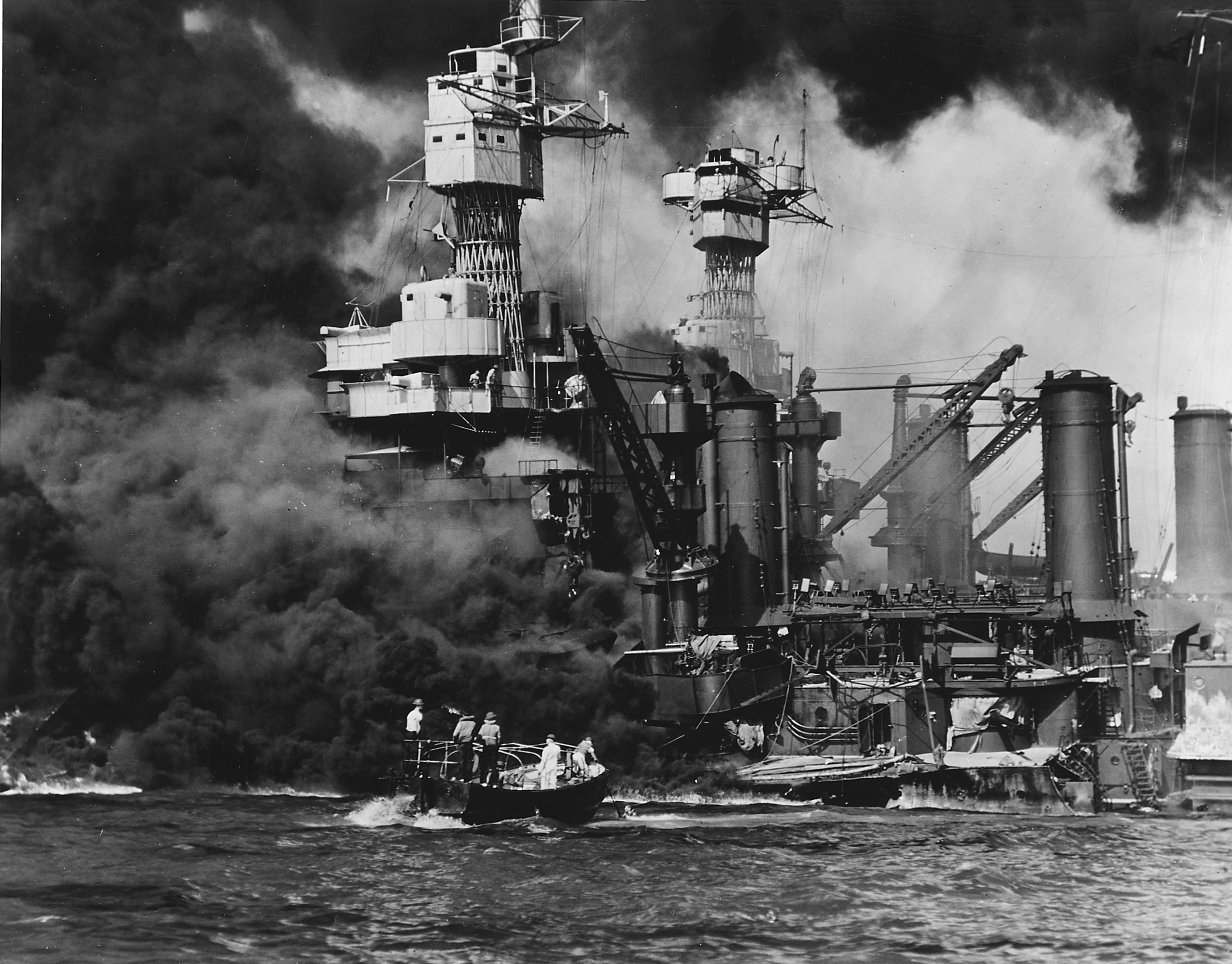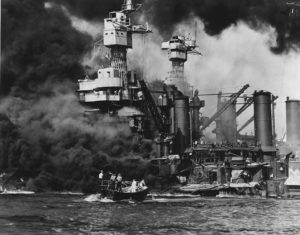
There is one thing that is beyond dispute about the December 7, 1941, Japanese attack on Pearl Harbor: It would never have happened if President Franklin Roosevelt had not squeezed the Japanese into initiating the attack with his oil embargo on Japan.
In his 1940 campaign for an unprecedented fourth term as president, Roosevelt pretended to side with the vast majority of Americans who opposed entry into World War II. He told American voters, “I have said this before, but I shall say it again and again and again; your boys are not going to be sent into any foreign wars.”
It was a lie. In fact, Roosevelt was secretly doing everything he could to embroil the United States into the European war between England, France, and Germany.
This was during the time that U.S. presidents were still complying with the constitutional restriction that required a congressional declaration of war before a president could wage war. If the situation back then were the same as it is now, Roosevelt would simply have ordered U.S. forces to go to war against Germany without bothering to get a congressional declaration of war.
FDR knew that Congress would never give him a declaration of war against Germany. That’s because the American people, after the massive waste of life and treasure in World War I, were overwhelmingly opposed to entering what was really a continuation of that war some twenty years later.
After all, let’s not forget that the goals of Wilson’s intervention into World War I (with a congressional declaration of war) were (1) to make the world safe for democracy and (2) to end all future European wars. At the risk of belaboring the obvious, the rise of the Hitler regime demonstrated to the American people that neither of Wilson’s goals had been achieved. In fact, Wilson’s intervention, which brought about Germany’s total defeat and the vindictive Treaty of Versailles, was one of the principal factors that gave rise to Hitler and his Nazi party. Thus, it was no surprise that Americans had no desire to go through another deadly and destructive European war.
FDR knew, however, that there was one surefire way to circumvent the will of the American people. If he could induce Germany to attack the United States, he could get his congressional declaration of war on grounds of “self-defense.”
Thus, FDR did everything he could to goad Germany into attacking U.S. vessels in the Atlantic. But the Germans refused to take FDR’s bait.
Roosevelt, however, did not give up. He turned his focus to the Pacific, thinking that if he could induce the Japanese to attack the United States, he could use that attack as a “back door” to entry into the European war.
FDR knew that Japan desperately depended on oil to continue waging its war in China. If FDR could interfere with Japan’s oil supplies, Japan would be put into the position of either having to withdraw from China or attacking the United States to ensure a continuous supply of oil from the Dutch East Indies.
That was FDR’s goal when he imposed his oil embargo on the Japanese. He knew that the chances that Japan would withdraw its war machine from China were nil. He knew that Japan would inevitably choose the other option — to attack the United States in order to keep it oil supplies running.
And that is precisely what FDR wanted. He wanted Japan to attack the United States somewhere so that he could then react with shock and horror as he requested a declaration of war from Congress on grounds of self-defense. He hoped that war with Japan could then be used to somehow secure a congressional declaration of war against Germany.
The U.S. war with Japan was never about freedom, as American students have long been taught in U.S. public (i.e., government) schools. Japan never had any intention of invading and conquering the United States. More important, they never had the military capability to even contemplate that possibility.
Their only aim was to damage the U.S. fleet at Pearl Harbor to such a large extent that it could not interfere with Japan’s securing of oil supplies in the Dutch East Indies.
 The battleships stationed at Pearl provided the perfect bait for the Japanese military. But the wily Roosevelt had ensured that American aircraft carriers were out to sea when the December 7 attack came. Those carriers would later play an invaluable role in the defeat of Japan in the war for the Pacific.
The battleships stationed at Pearl provided the perfect bait for the Japanese military. But the wily Roosevelt had ensured that American aircraft carriers were out to sea when the December 7 attack came. Those carriers would later play an invaluable role in the defeat of Japan in the war for the Pacific.
On December 7, 1941, Roosevelt achieved his aim. Japan attacked the United States at Pearl Harbor and Roosevelt, in turn, expressing shock and horror, got his congressional declaration of war from Congress.
More important, immediately after the attack, Germany declared war on the United States. That got Roosevelt what he really wanted the whole time — entry into the European conflict.
The post FDR’s Responsibility for the Japanese Attack on Pearl Harbor appeared first on The Future of Freedom Foundation.
* This article was originally published here
HELP STOP THE SPREAD OF FAKE NEWS!
SHARE our articles and like our Facebook page and follow us on Twitter!





0 Comments